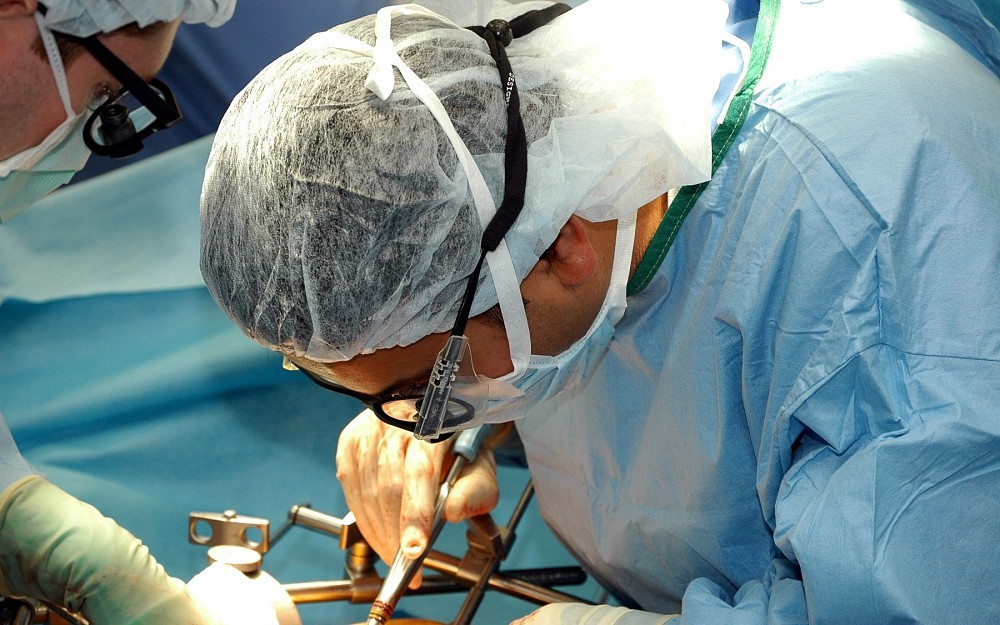
UC Performs 100th Specialized Procedure For Alleviating Chronic Pancreatitis
CincinnatiPhysicians at the University of Cincinnati (UC) Pancreatic Disease Center recently completed their 100th autologous islet cell transplantation at University Hospital, a highly specialized surgical procedure that can "cure chronic pancreatitis.
The Cincinnati team is one of only three major centers in the United States that offer pancreatectomy (removal of the pancreas) with autologous islet cell transplant to treat chronic pancreatitis (inflammation of the pancreas). UC began offering the procedure in 1999.
Syed Ahmad, MD, codirector of the center, says there are two goals of the surgery: to decrease abdominal pain, thereby improving the patients quality of life, and to reduce insulin dependence and/or gain glycemic control.
"Patients with chronic pancreatitis are quite debilitated. Most patients are on two to four short- and long-acting narcotics for pain by the time they get to us andfor the most partare addicted to these medications, explains Ahmad, a UC assistant professor and surgeon at University Hospital. "Even after the source of the pain (pancreas) is removed, many patients still perceive pain because their bodies are programmed to need these medications.
Because of this, he says, it usually takes about a month to wean patients off their pain medications or reduce them to an acceptable level.
"In our experience, 60 to 70 percent of patients can be taken off all pain medications, adds Ahmad. "This is extraordinary, considering that most of our patients have been taking narcotics for pain management for years.
Located behind the lower part of the stomach, the pancreas is a small organ that produces insulin and enzymes that help the body process and use food. The pancreas creates clusters of cells called the islets of langerhans, which are made of several types of cells including insulin-producing beta cells. This hormone helps the body use glucose (sugar) for energy. If the body does not produce enough insulin or has trouble using it properlycausing glucose to build up in the bloodthe patient will develop diabetes, requiring strict dietary changes or insulin injections.
During a pancreatectomy with autologous islet cell transplantation, the patients pancreas is completely removed. The organ is then taken to a laboratory where specialized enzymes are used to remove islet cells. The cells are then purified, processed and infused back into the patient through a vein in the liver.
"When we transplant islets, we transplant not only the cells that produce insulin but also cells making glucagon and other counteregulatory hormones critical to maintain the glucose homeostasis, explains Horacio Rilo, MD, director of the cellular transplant program at UC and associate professor of surgery, pediatrics and biomedical engineering. "Success is defined as insulin independence and stable, easy-to-control diabetes.
"Once implanted in a surrogate home (the liver), the beta cells in the islets begin to make and release insulin, adds Rilo. "These cells are less than 1 percent of the entire pancreas and very fragile, so the entire process is very time-sensitive.
The UC team says 40 percent of patients do not need insulin injections following the islet cell transplantation procedure; the remaining 60 percent require minimal to moderate amounts of injected insulin.
Patients typically remain in the hospital for four to six weeks following surgery to recover from the operation
Since opening in 2001, the UC Pancreatic Disease Center has become a leader in the treatment of pancreatic diseases, including chronic pancreatitis and pancreatic cancer. The multidisciplinary team treats about 200 patients annually from across the United States.
The team includes gastroenterologists Andres Gelrud, MD, Shailendra Chauhan, MD, and Nathan Schmulewitz, MD; medical oncologist Malek Safa, MD; radiologists Kyuran Choe, MD, and Jonathan Moulton, MD; radiation oncologists William Barrett, MD, and David Grisell, MD; nurse Lori Haggerty; surgeons Jeffrey Sussman, MD, and Ahmad; and islet cell transplantation expert Rilo.
For more information about treatment at the UC Pancreatic Disease Center, visit www.ucpancreas.org or call (513) 584-CURE.

Syed Ahmad, MD
Tags
Related Stories
ChemoID test leads to better outcomes in platinum-resistant...
April 7, 2025
MSN and MSN UK highlighted results from a new Phase 3 trial published in the journal npj Precision Oncology that found a cancer stem cell test can accurately choose more effective treatments and lead to improved outcomes for patients with platinum-resistant ovarian cancer.
Study: Platform-predicted treatments improve outcomes for...
April 4, 2025
Results from a new Phase 3 trial published in the journal npj Precision Oncology found that an assay that includes an assessment of cancer stem cell sensitivity to chemotherapy can accurately decide more effective treatments and lead to increased outcomes for patients with platinum-resistant ovarian cancer.
Pediatrician celebrates 30th UC College of Medicine reunion with...
April 3, 2025
There’s a vital thread woven into the fabric of Chris Peltier’s life. It’s black and red, and it knits all things Bearcat together into a life that was transformed by the University of Cincinnati and the UC College of Medicine.
